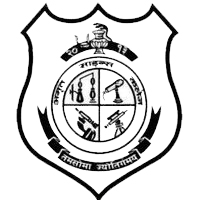Overview
MSc Mathematics at Central Department of Mathematics, Tribhuvan University
The MSc. mathematics program at the Central Department of Mathematics, Tribhuvan University, is a two-year, four-semester program that requires at least 100 credit hours.
Eligibility:
To be eligible for admission, students must pass the MSc Mathematics Entrance Examination based on the B.Sc./BA Mathematics syllabus the committee prescribes. The entrance examination lasts two hours and is worth 100 full marks. A minimum of 35% marks is required to pass it.
Admission Criteria:
-
Students must pass the entrance examination with a minimum of 35% marks.
-
Admission is based on merit, considering the marks obtained at the Bachelor level and the entrance examination.
-
The merit list is calculated using the formula: Merit List = 20% (marks obtained in B.Sc.) + 80% (marks secured in the entrance examination).
-
80% of the available seats are filled through open competition, and 20% are reserved for students from specific categories.
-
Students applying under the reserved category must fulfill certain criteria, such as passing SLC from community schools or being permanent residents of backward regions.
Curricular Structure:
The MSc Mathematics program consists of various courses, each with a specific number of credit hours, full marks, and pass marks. The course titles and their corresponding credit hours are as follows:
-
Topology I
-
Problems in Topology I
-
Topology II
-
Problems in Topology II
-
Measure Theory and Integration I
-
Problems in Measure Theory and Integration I
-
Functional Analysis I
-
Problems in Functional Analysis I
-
Complex Analysis and Application I
-
Problems in Complex Analysis and Application I
-
Differential Equations
-
Problems in Differential Equations
-
Theory of Function I
-
Problems in Theory of Function I
-
Theory of Function II
-
Problems in Theory of Function II
-
Differential Geometry
-
Problems in Differential Geometry
-
Combinatorial Optimization
-
Problems in Combinatorial Optimization
-
Mathematical Programming
-
Problems in Mathematical Programming
-
Mathematical Analysis
-
Problems in Mathematical Analysis
-
Functions of Several Variables
-
Problems in Functions of Several Variables
-
Elementary Harmonic Analysis
-
Problems in Elementary Harmonic Analysis
-
Algebra I
-
Problems in Algebra I
-
Algebra II
-
Problems in Algebra II
-
Linear Algebra
-
Problems in Linear Algebra
-
Linear Algebra and Its Application
-
Problems in Linear Algebra and Its Application
-
Introduction to the Theory of Sets
-
Problems in Introduction to the Theory of Sets
-
Theory of Numbers I
-
Problems in the Theory of Numbers I
-
Mechanics
-
Problems in Mechanics
-
Functional Analysis II
-
Problems in Functional Analysis II
-
Harmonic Analysis
-
Problems in Harmonic Analysis
-
Special Function I
-
Problems in Special Function I
-
Special Function II
-
Problems in Special Function II
-
Partial Differentiation Equations I
-
Problems in Partial Differentiation Equations I
-
Integral Transforms I
-
Problems in Integral Transforms I
-
Measure Theory and Integration II
-
Problems in Measure Theory and Integration II
-
Scheduling Theory
-
Problems in Scheduling Theory
-
Integer Programming
-
Problems in Integer Programming
-
Network Optimization
-
Problems in Network Optimization
-
Graph Theory
-
Problems in Graph Theory
-
Numerical Analysis
-
Problems in Numerical Analysis
-
Numerical Optimization
-
Problems in Numerical Optimization
-
Dynamical Systems
-
Problems in Dynamical Systems
-
Dynamics of Viscous Fluids
-
Problems in the Dynamics of Viscous Fluids
-
Partial Differentiation Equations II
-
Problems in Partial Differentiation Equations II
-
Introducing to C Programming
-
Seminar
-
Thesis
-
Integral Transform II
-
Problems in Integral Transformation II
-
Complex Analysis and Applications II
-
Problems in Complex Analysis and Applications II
-
Theory of Numbers II
-
Problems in Theory of Numbers II
-
Scientific Computing
-
Analysis of Finite Difference Schemes
-
Introduction to Commutative Algebra
-
Location Analysis
-
Mathematical Models in Biology
-
Advanced Ordinary Differential Equations
Career Prospects:
-
Teaching and research positions in educational institutions
-
Mathematical modeling and analysis in various industries
-
Actuarial science
-
Financial analysis and risk assessment
-
Data analysis and statistics
-
Cryptography and data security
-
Software development and programming
-
Government agencies and research organizations
Fees Structure:
For detailed information about the MSc Mathematics program's fee structure and other financial aspects, you should contact the Central Department of Mathematics administration office at Tribhuvan University.
Why Choose this Course:
-
Provides advanced knowledge and skills in mathematics
-
Enhances analytical thinking and problem-solving abilities
-
Opens up diverse career opportunities in academia, research, and industry
-
Opportunity to contribute to the field of mathematics through research and publications
Scholarship:
Contact the Central Department of Mathematics administration office at Tribhuvan University for information about scholarships and financial assistance.
Contact Central Department of Mathematics's administrative office for detailed information on the MSc in Mathematics course, including fees, scholarships, facilities, counseling, eligibility criteria, etc.














